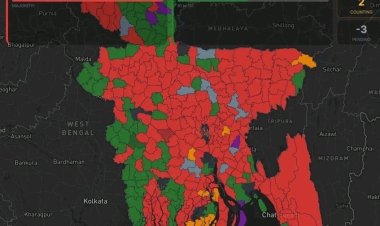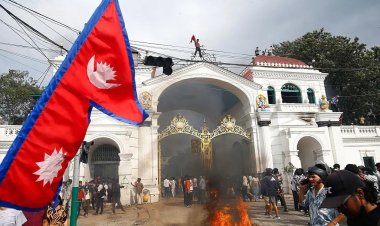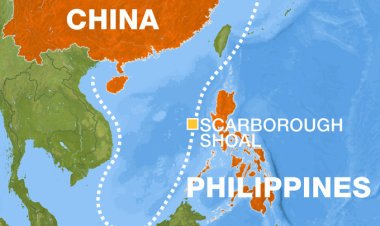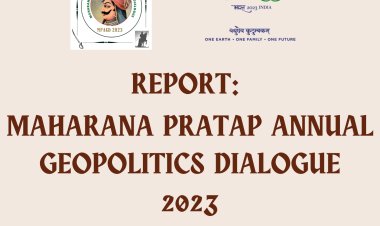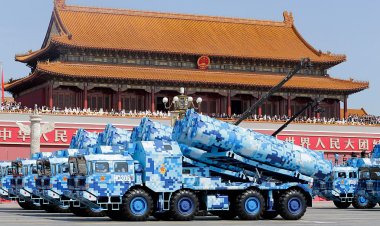Climate Change and India's Geopolitical Advantage in Global Food Trade: Challenges and Strategies
India's global food trade faces climate challenges, evident in recent export bans due to erratic monsoons. To secure its position, India needs resilient strategies, drawing inspiration from countries that excel in adaptation practices. The case-by-case export approach offers short-term diplomatic leverage, but sustainable development success demands proactive government policies and global cooperation to tackle climate change and ensure
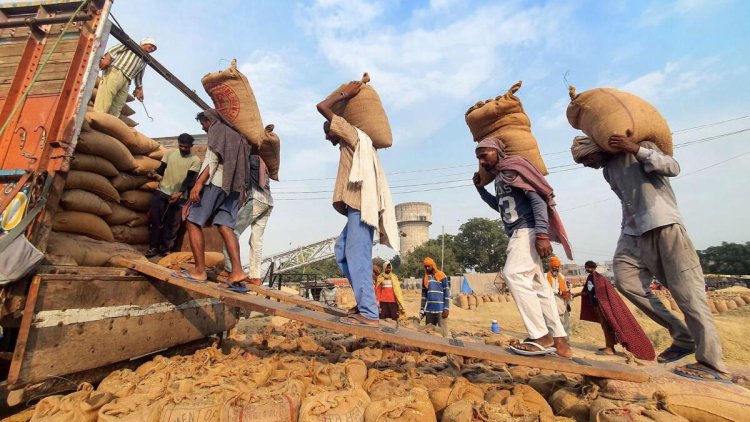
Analysis
By Jayendra Singh
Global trade of food is not a recent phenomenon, throughout history, fruits, vegetables and grains have traveled across oceans, forging trade alliances and expanding state’s abilities in terms of foreign policy and diplomacy. The advent of modernized supply chains and the expansion of economies has created a complex web of global trade where foodstuff has become one of the most important goods to trade, not just for economics but for state survival.
Although different countries trade differently and some are major importers or exporters, India, since its Green Revolution has thrived in the global marketplace of agricultural goods. Currently, India is the largest exporter of rice and among the top producers of all agriculture goods. It has held the position for a long time, supporting many countries with their rice needs. However, this position as a growing and already top-tier supplier is threatened by the growing effect of climate change on the country; the recent decision to stop the export of non-basmati rice to the USA–and the ban on Basmati rice as well–was fueled by the irregular domestic supply fluctuation caused by the erratic monsoons, the El-Nino and lack of yield, leading to global supply issues and price hikes.
These patterns of fluctuations in supply are becoming commonplace now as climate change impacts slowly begin to unearth themselves. These fluctuations put negative weight on the economy's food security and can create global supply chain issues, especially for countries that are highly dependent on India. Moreover, the hidden effects can cause great geopolitical turmoil to India, as its trade alliances get affected by domestic supply issues and alternative suppliers try to sweep into the global trade for their share of the pie.
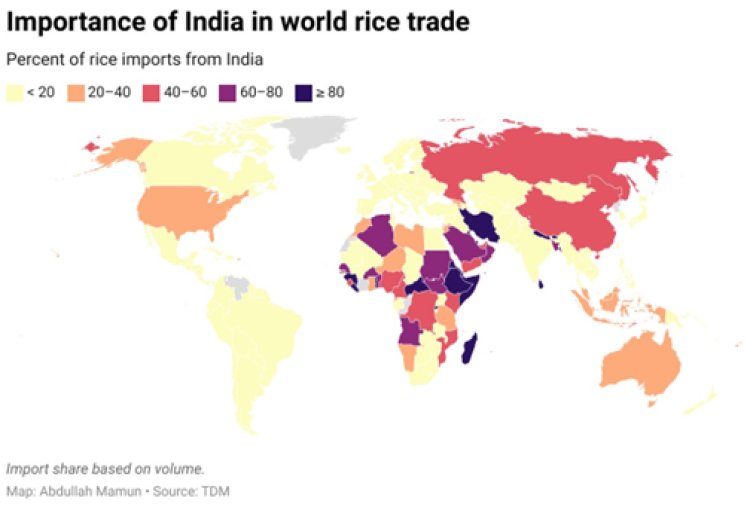
India’s Food Trade
India is the second largest food exporter in the world, just behind China. In the international arena, trade is a source of extreme power. India, through its unprecedented growth in the agricultural sector–dragging itself from becoming a net importer to a major exporter–has garnered this power in the form of food trade alliances. Its agricultural sector provides it with a major portion of its GDP, providing self-sufficiency, and consequently reducing dependency on other nations.
Currently, India exports around 40% of the world’s rice as of 2022-23. This means that its decisions hold weight in the international supply chain and the shockwaves carry geopolitical impacts with it. India’s decision is posed to hit the African countries the hardest, (see figure) where it provides more than 50% or even 90% of the rice. Moreover, some experts believe that India’s decision can cause a domino effect and make other nations follow suit. India’s aim of keeping a surplus is disrupted, causing domestic price hikes and consequently impacting the trade at a broader level.
Climate Change and Agriculture
India’s agriculture sector is already hanging through thin and untrustworthy threads of unpredictable monsoon and natural irrigation. Climate change has been wreaking havoc on weather patterns and India witnessed delayed monsoons and droughts. While some crops can be adapted to the changes, temperature and water-sensitive crops are ruined immediately. This disruption isn't confined to India alone but reverberates globally, affecting global food prices and availability. A recent example of climate change-induced fluctuation is the recent Indian monsoon failure, which impacted rice production. As India's rice exports dwindled due to poor monsoon, nations reliant on Indian rice faced uncertainty and price hikes. These disruptions upset not just domestic farmers but also impacted nations which are reliant on India, that had to alter their food security policies and look for alternate suppliers. This issue can open a can of worms for India geopolitically, which we shall discuss in another section. For now, the critical issue is to ensure adaptive measures for resilience in food production and trade.
Enhancing Resilience and Food Security
Building resilience in India's agriculture sector is imperative to mitigate climate change impacts. Strategies to enhance domestic food production and strengthen food security must be prioritized. Technology, research, and innovation are central to improving agricultural practices and bolstering India's geopolitical standing. In this context, Israel provides an instructive example. Despite being a water-scarce nation, Israel has become a global leader in agriculture through innovative practices such as drip irrigation and precision farming. India can draw lessons from Israel's success in adapting to adverse climatic conditions and enhancing agricultural productivity, which in turn, strengthens its geopolitical hand.
Geopolitics of Global Food Supply Chain
India's position as a leading food exporter bestows upon it several geopolitical advantages. Its continuous trade with nations creates economic stability, generating substantial revenues. It also serves as a pillar to strengthen India’s trade networks, and possible avenues for unconventional diplomacy. Solid exports and trade creates stability by reducing dependency on imports. It also provides India with influential leverage in global politics. This means that India can use its food exports as a bargaining chip in negotiations with other countries. Finally, India's position as a leading food exporter can also help to improve its relations with other countries. Countries that are dependent on India for food will be more likely to be friendly towards India. This can lead to increased trade and cooperation between India and these countries. An illustrative example of this geopolitical advantage can be seen in India's strategic food diplomacy with neighboring countries. In times of regional tensions, India has employed its food exports as a diplomatic tool. India has the opportunity to employ export quotas for diplomatic pressure or extend a diplomatic olive branch to neighboring countries, thus influencing the regional geopolitical landscape.
The Indian Diplomacy of Food and Trade
Food is not just a trade commodity, as with everything that can be traded, there is potential for geopolitical advantage, which India must keep in mind while making decisions that carry multiple layers of shockwaves. The government, however, has shown an unexpected diplomatic strategy–intended or not–which holds promise for India’s geopolitical ambitions, especially against China and other nations hoping to gain more share of the international trade pie. The government announced that while the bans are in place, it will still be offering exports on a case-by-case basis, which is an excellent strategy employed once again after the ban on Wheat in 2022. Nations approaching directly got their share of it, and while the ban was the result of price hikes induced by the Russia-Ukraine war, India was not scrutinized for its conservative policies because of this window that it kept open for friends. This strategy on rice export sanctions might just help India in creating more diplomatic leverage and garner soft power. India is also providing rice to Mauritius and Bhutan as a form of humanitarian aid, making exceptions for their diplomatic partners. However, this kind of help is only possible if India must have a surplus of their own, which is where the challenges begin.
There is a world food shortage which is impacted by climate change. If India’s food security keeps getting impacted then the humanitarian assistance it gives will also have to stop; then India will face a dilemma where either it must face high prices or not help friends. Diplomatic relations could face tension this way, where the countries ask for exceptions but India can’t provide any. This type of case by case method might be a great way to employ soft power, but it still does not negate the fact that India’s food production is waiting to be hit by waves of climate change.
Government Policies and International Engagement
India’s position might seem lucrative at first, however it does not negate the fact that the sword of climate change is looming over its head. Government policies and proactive engagement with the stakeholders involved such as the farmers, civil society, and scientists is the only way to move forward and find the balance. India must practice Climate Smart Agriculture and ensure its progress is towards a better future. International engagement and cooperation are essential to address climate change and food security issues as well. A coordinated global response is imperative to protect India's geopolitical advantage in global food trade.
Conclusion
In conclusion, India's prominent position in the global food trade faces unprecedented challenges due to climate change. Its geopolitical advantage when it comes to achieving a lucrative position in the competitive African countries lies in the hands of policymakers. This situation is a strategic asset and a vulnerability, depending on the course of action taken. Urgent action is required to sustain this position amidst changing weather patterns and growing global competition. India must adapt, enhance resilience, foster regional cooperation, and advocate for international collaboration to secure its role as a leader in global food trade while safeguarding food security for its people and the world. Geopolitical astuteness, innovative adaptation, and international cooperation are the keys to India's success in navigating the turbulent waters of global food trade in the era of climate change.

Disclaimer: This paper is the author's individual scholastic contribution and does not necessarily reflect the organization's viewpoint.
Jayendra Singh is a Final year student at the Jindal School of International Affairs pursuing MA in Diplomacy, Law and Business. His research interests lie in the field of Global Environmental Governance, Green (IR), and caste studies.












